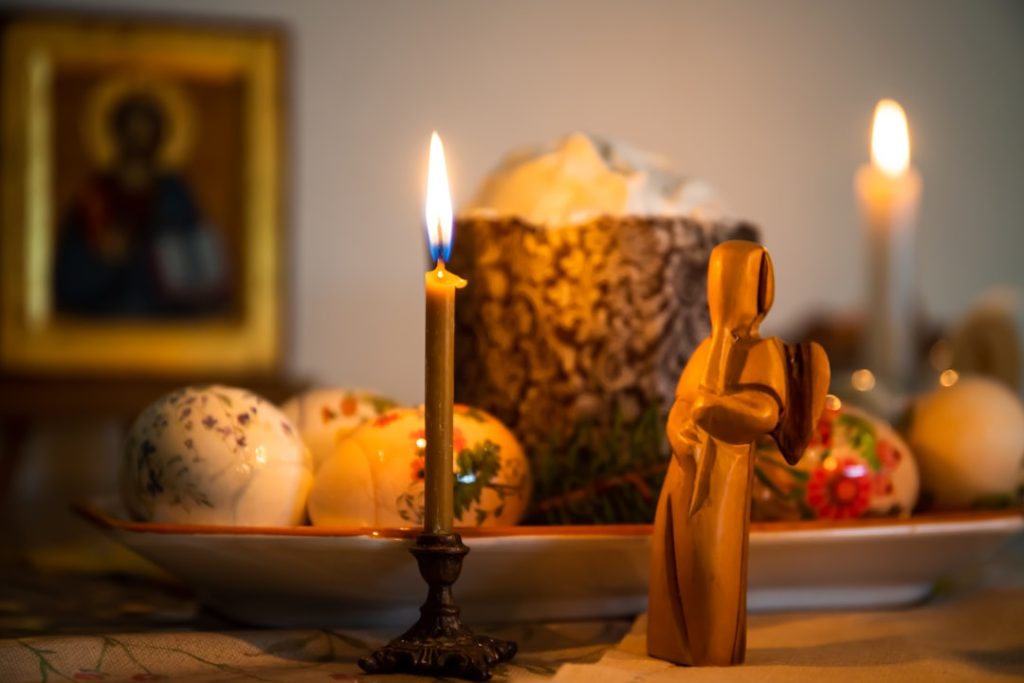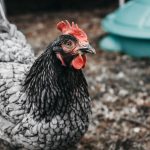During winter, chickens require specific care to maintain their health and well-being. While generally hardy, chickens can be affected by cold weather, making it essential to understand and address their needs for optimal survival. Chickens need a warm, dry environment in winter.
They are vulnerable to drafts and moisture, which can cause respiratory issues and other health problems. Access to fresh water and nutritious food is crucial for maintaining body temperature and energy levels. Close monitoring of chicken behavior and health is necessary during winter, as they may show signs of distress or illness due to cold conditions.
To meet chickens’ winter needs, provide adequate shelter with proper insulation, appropriate heating methods, sufficient ventilation, and warm, nutritious food and water. Addressing these requirements ensures chickens remain healthy and comfortable throughout the winter season.
Table of Contents
- 1 Providing proper shelter and insulation for your chickens
- 2 Using heat lamps and other heating methods
- 3 Ensuring proper ventilation in the chicken coop
- 4 Offering warm and nutritious food and water
- 5 Monitoring the health and behavior of your chickens
- 6 Implementing additional measures for extreme cold weather
- 7 FAQs
- 7.1 What are the best ways to keep my chickens warm during winter?
- 7.2 How can I insulate my chicken coop for winter?
- 7.3 Is it safe to use heat lamps or heaters in the chicken coop?
- 7.4 What type of bedding is best for keeping chickens warm in winter?
- 7.5 Why is ventilation important in keeping chickens warm during winter?
Key Takeaways
- Chickens need extra care during winter to stay healthy and comfortable
- Proper shelter and insulation are essential to protect chickens from cold temperatures
- Heat lamps and other heating methods can help maintain a comfortable environment for chickens
- Good ventilation is crucial to prevent moisture buildup and maintain air quality in the coop
- Providing warm and nutritious food and unfrozen water is important for the well-being of chickens
- Regularly monitor the health and behavior of chickens to address any issues promptly
- In extreme cold weather, consider additional measures such as adding extra insulation or using heated waterers
Providing proper shelter and insulation for your chickens
Insulation from the Ground Up
This can be achieved by using materials such as straw, hay, or wood shavings on the floor of the coop to provide insulation from the cold ground. Additionally, adding extra bedding in nesting boxes can help keep the chickens warm while they roost.
Ventilation and Draft Prevention
It’s also important to ensure that the coop is well-ventilated to prevent moisture buildup, which can lead to respiratory issues in chickens. However, ventilation should be carefully managed to avoid drafts.
Additional Measures for a Comfortable Environment
Insulating the walls and ceiling of the coop can help maintain a comfortable temperature inside, while also preventing drafts from entering the coop. In addition to proper insulation, providing a windbreak around the coop can help protect the chickens from harsh winds and cold temperatures. This can be achieved by using tarps or other materials to create a barrier against the elements. By providing proper shelter and insulation, you can create a comfortable environment for your chickens to thrive in during the winter months.
Using heat lamps and other heating methods

In some cases, especially in extremely cold climates, additional heating methods may be necessary to keep chickens warm during the winter. Heat lamps are a popular option for providing supplemental heat in the chicken coop. These lamps should be installed at a safe distance from flammable materials and secured properly to prevent any accidents.
It’s important to use heat lamps specifically designed for use in a chicken coop, as they are designed to be safe for use around animals. Another heating method that can be used is a radiant heater, which provides a gentle heat source without the use of open flames. These heaters are designed to be safe for use in enclosed spaces and can help maintain a comfortable temperature in the coop without posing a fire hazard.
It’s important to monitor the temperature inside the coop regularly when using heating methods to ensure that it remains within a safe range for the chickens. Additionally, it’s crucial to have a backup power source in case of power outages, as loss of heat can be dangerous for chickens in extremely cold weather. While heating methods can be beneficial in keeping chickens warm during the winter, it’s important to use them cautiously and follow all safety guidelines to prevent any accidents or injuries.
Ensuring proper ventilation in the chicken coop
Proper ventilation is crucial for maintaining a healthy environment inside the chicken coop during the winter months. While it’s important to keep the coop warm, it’s equally important to ensure that there is adequate airflow to prevent moisture buildup and maintain good air quality. Ventilation can be achieved by installing vents or windows in the coop that can be opened or closed as needed.
This allows for air circulation while also preventing drafts from entering the coop. It’s important to position vents or windows strategically to avoid direct drafts on the chickens while still allowing for proper airflow. In addition to vents or windows, installing a ridge vent or exhaust fan can help remove excess moisture and stale air from the coop.
This can help prevent respiratory issues in chickens that can arise from poor air quality. It’s important to monitor the ventilation in the coop regularly to ensure that it is adequate for the number of chickens housed inside. Proper ventilation is essential for maintaining a healthy environment for chickens during the winter months.
Offering warm and nutritious food and water
During the winter months, it’s important to provide warm and nutritious food and water for your chickens to help them maintain their body temperature and energy levels. Chickens require more energy in cold weather to stay warm, so providing high-quality feed is essential. Feeding your chickens a diet rich in protein and fat can help them generate more body heat to stay warm during the winter.
Additionally, offering warm food such as oatmeal or scrambled eggs can provide an extra boost of warmth for your chickens on particularly cold days. In addition to food, it’s crucial to ensure that your chickens have access to fresh, unfrozen water at all times. This can be achieved by using heated waterers or regularly replacing frozen water with fresh water throughout the day.
Dehydration can be a serious issue for chickens in cold weather, so it’s important to monitor their water intake closely. By offering warm and nutritious food and water, you can help your chickens stay healthy and comfortable throughout the winter months.
Monitoring the health and behavior of your chickens

Recognizing Signs of Illness
Regular observation is crucial to detect any signs of illness or discomfort in your chickens. Look out for symptoms such as lethargy, decreased appetite, or unusual behavior. In addition to visual checks, handling your chickens regularly can help identify any abnormalities, including frostbite or injuries.
Frostbite Prevention and Care
Frostbite is a common issue in chickens during cold weather, particularly affecting their combs, wattles, and feet. Regular checks can help prevent further complications. If you suspect frostbite, provide appropriate care, and consider consulting a veterinarian for guidance.
Professional Guidance and Care
Regular health checks by a veterinarian can ensure your chickens are in good condition during the winter months. A veterinarian can offer valuable advice on proper nutrition, health management, and necessary medical treatments. By monitoring your chickens’ health closely, you can identify any issues early on and take prompt action to ensure their well-being throughout the winter.
Implementing additional measures for extreme cold weather
In extreme cold weather conditions, additional measures may be necessary to ensure the safety and comfort of your chickens. This can include using insulating materials such as bubble wrap or foam board on windows and doors to provide extra protection against cold drafts. Adding extra bedding inside the coop can also help provide insulation from the cold ground and maintain warmth inside the coop.
This can be achieved by using materials such as straw, hay, or wood shavings to create a thick layer of bedding for the chickens. In extremely cold weather, providing a warm area inside the coop with a heat source such as a heat lamp or radiant heater can help prevent frostbite and keep your chickens comfortable. This area should be large enough for all of your chickens to gather together for warmth.
Additionally, providing extra protection from wind and snow by using tarps or other materials around the outside of the coop can help shield your chickens from harsh weather conditions. By implementing these additional measures for extreme cold weather, you can ensure that your chickens stay safe and comfortable even in the harshest winter conditions. In conclusion, understanding and addressing the specific needs of your chickens during winter is essential for their health and well-being.
By providing proper shelter and insulation, heating methods, ventilation, warm and nutritious food and water, monitoring their health and behavior, and implementing additional measures for extreme cold weather, you can create a comfortable environment for your chickens to thrive in during the winter months. Taking these measures will help ensure that your chickens stay healthy and happy throughout the colder seasons.
If you’re looking for tips on how to keep your chickens warm during winter, you may also be interested in learning about the best kind of coop for chickens. Check out this article for helpful information on creating a cozy and safe environment for your feathered friends.
FAQs
What are the best ways to keep my chickens warm during winter?
Some effective ways to keep chickens warm during winter include insulating the coop, using heat lamps or heaters, providing extra bedding, and ensuring good ventilation.
How can I insulate my chicken coop for winter?
You can insulate your chicken coop by adding insulation to the walls, ceiling, and floor. You can also use draft excluders and weather stripping to seal any gaps or cracks.
Is it safe to use heat lamps or heaters in the chicken coop?
It is safe to use heat lamps or heaters in the chicken coop as long as they are installed properly and used according to the manufacturer’s instructions. It’s important to keep them away from flammable materials and to use a thermostat to regulate the temperature.
What type of bedding is best for keeping chickens warm in winter?
Bedding materials such as straw, hay, or wood shavings are good choices for keeping chickens warm in winter. These materials provide insulation and help to retain heat in the coop.
Why is ventilation important in keeping chickens warm during winter?
Proper ventilation is important in keeping chickens warm during winter because it helps to remove excess moisture and ammonia from the coop, which can lead to respiratory issues. Good ventilation also helps to regulate the temperature and prevent the buildup of harmful gases.
Meet Walter, the feathered-friend fanatic of Florida! Nestled in the sunshine state, Walter struts through life with his feathered companions, clucking his way to happiness. With a coop that’s fancier than a five-star hotel, he’s the Don Juan of the chicken world. When he’s not teaching his hens to do the cha-cha, you’ll find him in a heated debate with his prized rooster, Sir Clucks-a-Lot. Walter’s poultry passion is no yolk; he’s the sunny-side-up guy you never knew you needed in your flock of friends!







